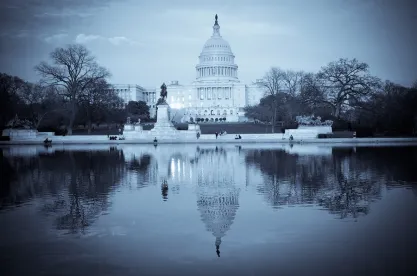On Friday, April 24, 2020, President Trump signed into law the Paycheck Protection Program and Health Care Enhancement Act (the “Act”), which amends the Coronavirus Aid, Relief, and Economic Security Act (the “CARES Act”). The $484 billion relief package includes a $310 billion increase in funding for the Paycheck Protection Program (“PPP”), bringing the total authorized funding for the PPP to $659 billion. The Act also provides an additional $10 billion to the Small Business Administration (the “SBA”) to provide emergency grants of up to $10,000 under the Economic Injury Disaster Loan (“EIDL”) program, and an additional $50 billion for the SBA to provide EIDL emergency loans.
The previous day, the SBA released additional guidance in its list of Frequently Asked Questions (“FAQs”) to clarify that businesses that have “other sources of liquidity sufficient to support their ongoing operations in a manner that is not significantly detrimental to [their] business,” including public companies “with substantial market value and access to capital markets,” should carefully evaluate their need for PPP funds and their ability to make the required certification. In addition, the Federal Reserve announced it intends to make certain information about participants in the CARES Act funding programs, such as the PPP and the Main Street Lending Program, available to the public.
Additional $310 Billion in PPP Funding & $60 Billion in EIDL Funding
Except for the amendments related to the funding increases and specifically allocating some funds to smaller banks, the Act did not amend any provisions of the CARES Act related to the PPP and the EIDL programs. Of the $310 billion allocated to PPP, (i) $30 billion will be available to authorized lenders with less than $10 billion in assets and to authorized community financial institutions (as set forth the Act), (ii) $30 billion will be available to authorized lenders with between $10 and $50 billion in assets, and (iii) $250 billion will be allocated to all authorized lenders as per the initial round of PPP funding.
Of the $60 billion for the EIDL program, $10 billion is allocated to provide emergency grants of up to $10,000, and $50 billion is allocated to provide EIDL emergency loans.
The Act also provided an additional $75 billion in funding for hospitals and $25 billion for testing.
The initial $349 billion in funding for the PPP lasted less than two weeks and we anticipate that these new funds will be depleted even faster. There is no new application and most lenders are not requiring borrowers to reapply if they previously submitted an application – we are recommending applicants confirm their application status with their lender.
More Scrutiny Anticipated for CARES Act Programs
On April 23, 2020, the SBA released a new FAQ (#31) that includes the following:
- a reminder to applicants and borrowers that the PPP loan application includes a good faith self-certification (made under penalty of perjury) that “[c]urrent economic uncertainty makes this loan request necessary to support the ongoing operations of the Applicant”;
- a clarification that the following businesses likely do not qualify for PPP loans: (i) businesses that have “other sources of liquidity sufficient to support their ongoing operations in a manner that is not significantly detrimental to the business,” and (ii) public companies “with substantial market value and access to capital markets,”; and
- a confirmation that each PPP borrower should be “prepared to demonstrate to the SBA, upon request, the basis for its [good faith] certification.”
The SBA provided an example of a public company with access to capital markets and substantial market value as a company that may not be eligible for a PPP loan. This example is of limited usefulness because it only applies to a small number of companies that fit this narrow description. This FAQ comes after days of press coverage on several large businesses obtaining (and in several cases now returning) PPP funds.
We previously highlighted this economic uncertainty certification as a potential legal risk in an alert issued on April 10th. While we do not believe this FAQ changes the analysis for most applicants, we believe that the SBA’s reminder and clarifications should cause all applicants to review their reasoning for applying for a loan and document the impacts of Covid-19 on their business.
If borrowers already received a PPP loan and now believe that they cannot make this certification or otherwise comply with the guidance in this FAQ, the PPP funds may be repaid to their lender on or before May 7, 2020, and the SBA will deem the borrower to have made the required certification in good faith.
In what is likely not a coincidence, the Federal Reserve also announced on April 23, 2020, that it will “report substantial amounts of information on a monthly basis for the liquidity and lending facilities using Coronavirus Aid, Relief, and Economic Security, or CARES, Act funding, including the: Names and details of participants in each facility; Amounts borrowed and interest rate charged; and Overall costs, revenues, and fees for each facility.” These facilities include the PPP, the Main Street Lending Program and the other CARES Act programs the Federal Reserve is overseeing.
Conclusion
Taking all this information together, it seems clear that increased scrutiny by the government, lenders and the general public should be expected for all businesses participating in any federal program (including, PPP, EIDL, and the Main Street Lending Program) and each applicant and borrower should be prepared to defend their need for funding publicly.







 />i
/>i
